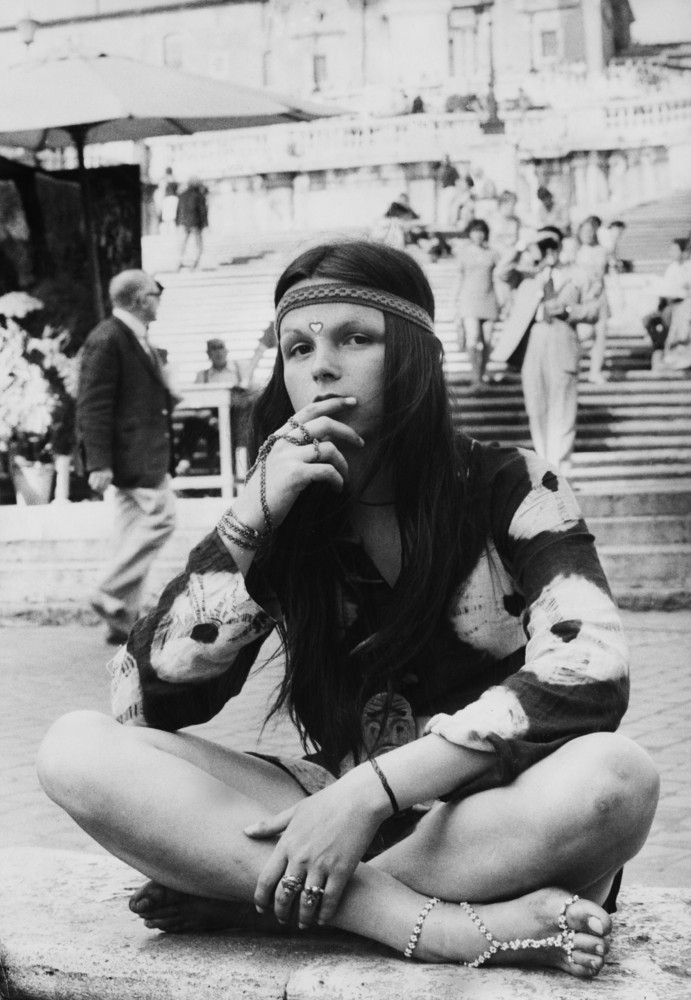The "Modern" Hippie
Share
Many have debated the hippie vs. hipster and the stages of evolution or devolution which need to occur to reach one or the other. One could suggest they are adjectives, others would suggest nouns. The way we mold versions of what other people are and what they will become, maybe they should be verbs. I think this debate mostly occurs because there is a general idea, perception, and confusion with what a “modern” hippie is. Setting aside the personal conflict of struggling to be a something, what I would like to know, because I am not a hippie, is what today’s hippie is? And is it more important today than it was fifty years ago?
In my opinion most trends and styles come from outside of North America. The hippie movement in the United States in the 1960’s, although derived from other cultural practices, was truly one trend that was started in North America. I can’t define exactly what being a hippie during those time periods was like, because I never lived it. Communal living, artistic expression, peace; these were some of the things that defined being a hippie. During those time periods though, because of the dedication to peace, being a hippie meant being in protest to ongoing war and political masquerades. At the time, this seemed of great importance.
Also, despite our ignorance to any environmental impacts, the hippie lifestyle really was a sustainable one. After watching the documentary Commune in a Sociology of Community class years ago, I realized that there were certain things the hippie culture was “on to”, despite certain regrets they may have eventually had (you’ll have to watch to see what those were). The importance of being a practicing hippie during this time period seems to be portrayed in mostly a political sense, while I feel that, to the people who take part in it, it may have meant more.
 The culture does still exist, and there are still modern day hippie communes (see a list here). What I often struggle with is whether the actions of being a hippie are now less political and more about escaping our modern society. The agendas of the modern, educated member of society seem to mirror bits and pieces of what it meant to be a hippie in the early stages. I do not need to be a hippie to care about the environment. I do not need to be a hippie to care about sustainable living, or business. It is not necessary to be a hippie to protest political agendas. These are things we may do while just being an average, 9-5 working, tax paying, suburb living Joe. All of these things that we think of when we think of being a hippie, really to me, do not at all reflect what a modern day hippie is.
The culture does still exist, and there are still modern day hippie communes (see a list here). What I often struggle with is whether the actions of being a hippie are now less political and more about escaping our modern society. The agendas of the modern, educated member of society seem to mirror bits and pieces of what it meant to be a hippie in the early stages. I do not need to be a hippie to care about the environment. I do not need to be a hippie to care about sustainable living, or business. It is not necessary to be a hippie to protest political agendas. These are things we may do while just being an average, 9-5 working, tax paying, suburb living Joe. All of these things that we think of when we think of being a hippie, really to me, do not at all reflect what a modern day hippie is.
Most people I have met who consider themselves to be hippies, are in fact hipsters who have begun the evo or devo(lution). Most people I know who consider themselves hippies are almost foolish in the way they go about caring on not caring. It may be cool man, to not care, but it has gotten to the point where trying so hard not to try, is obvious. I applaud and respect those who do carry out the full hippie lifestyle as it once was. And maybe I am off base; maybe the misconception of what a “modern” hippie is, only exists because their existence has faded. The voice is not as strong. My final point, that would suggest hippie culture was more important then than it is now would be: To see in all of us, the will to change, and the will to be a progressive thinking, sustainable living culture; that is what makes having been a hippie in the past so important. It’s those individuals and their actions that help shape the society that we have become. The better portion of it, anyways.
The post The "Modern" Hippie appeared first on tentree.